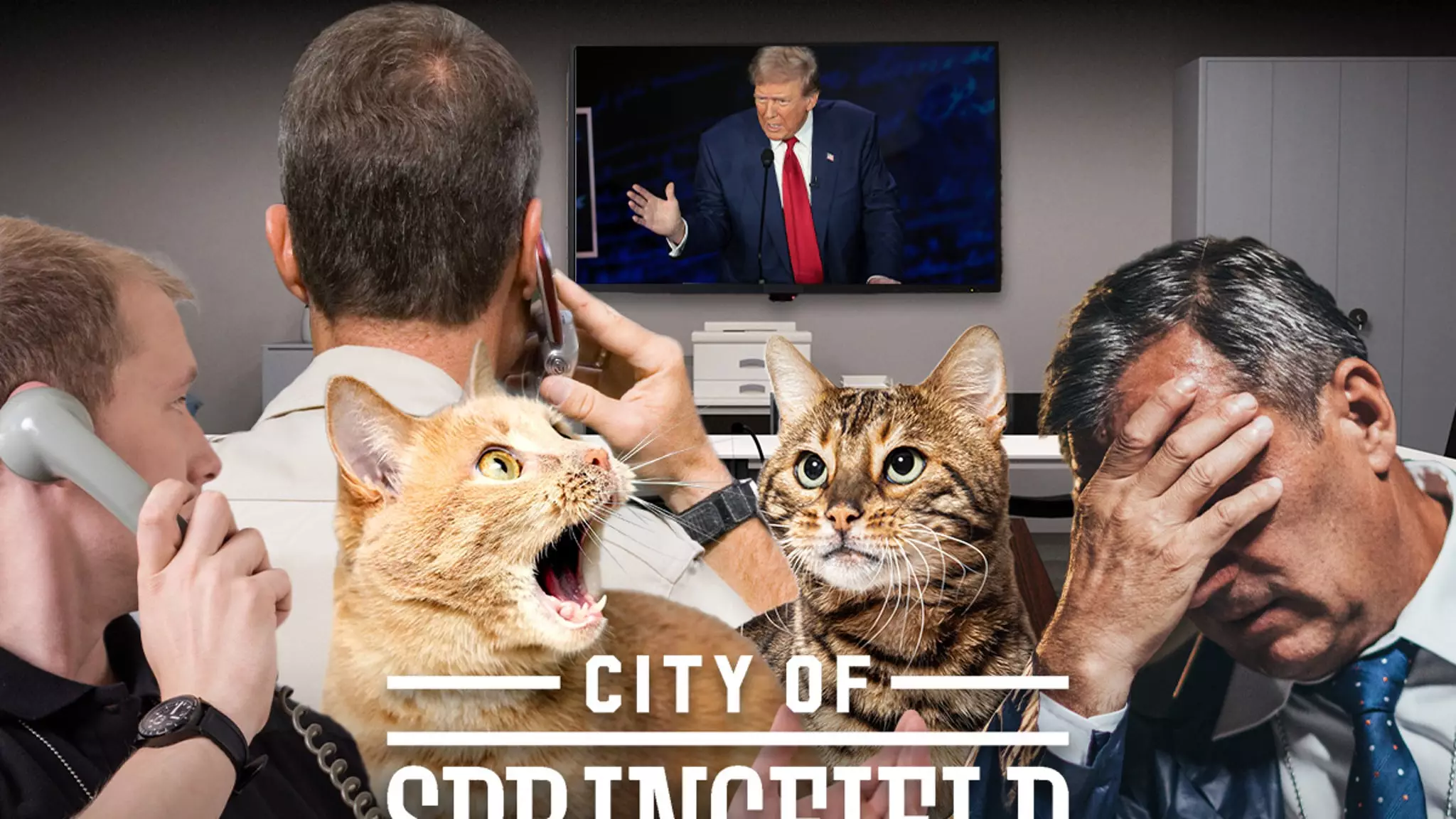In recent events, former President Donald Trump made headlines by propagating a ludicrous conspiracy theory during a debate, alleging that Haitian immigrants in Springfield, Ohio, were consuming household pets such as cats and dogs. This outrageous claim sparked an overwhelming influx of inquiries to the Springfield Police Department, overwhelmed with hundreds of concerned calls from citizens not only within the community but from across the nation. This unprecedented situation has raised significant concerns about the impact of baseless claims on public safety and law enforcement efficacy.
The Springfield Police, inundated by an exceptional volume of calls—reported to be doubled—are facing substantial challenges in their day-to-day operations. This situation is not merely an inconvenience; it directly hampers their ability to investigate genuine crimes. The police chief acknowledged the strain these futile inquiries place on their resources, which in turn detracts from their core mission of ensuring public safety and addressing real criminal activities. The officers are frustrated as they navigate legitimate investigations amidst a cacophony of baseless allegations.
The assertion made by Trump stands in stark contrast to the reality on the ground. The Springfield Police have clarified that there have been no reported incidents of animals being harmed, much less consumed, by immigrants. Rather than addressing community issues, this misinformation diverts attention and resources towards unfounded fears. To make matters worse, a recent incident involving a woman accused of killing a cat was entirely unrelated, as she was a local resident with no ties to the Haitian community.
Furthermore, fact-checking efforts highlighted during the debate revealed the degree of misinformation being circulated. Moderator David Muir pointed out that officials in Springfield confirmed that no pets had been harmed, emphasizing the disconnection between Trump’s comments and the actual situation. This kind of rhetoric not only misleads the public but also instills unnecessary fear in communities.
The rapid spread of misinformation is accentuated by platforms like social media. Following Trump’s statements, Donald Trump Jr. compounded the issue by sharing a misleading audio clip that misinterpreted a legitimate 911 call about unrelated incidents. Such actions only serve to stoke the flames of panic and community discord. The disconnect between what was claimed and what occurred can erode trust in both law enforcement and communal relations.
This episode serves as a poignant reminder of the responsibility that public figures have when conveying information. Irresponsible rhetoric can have real-world consequences, including chaos, fear, and strain on law enforcement agencies. It raises an urgent necessity for everyone—especially those in positions of authority—to handle information with care, understanding that careless statements can inflict harm rather than provide safety. Ultimately, the dialogue surrounding immigration and community safety should always be grounded in facts to foster a healthier society where trust and cooperation can thrive.

